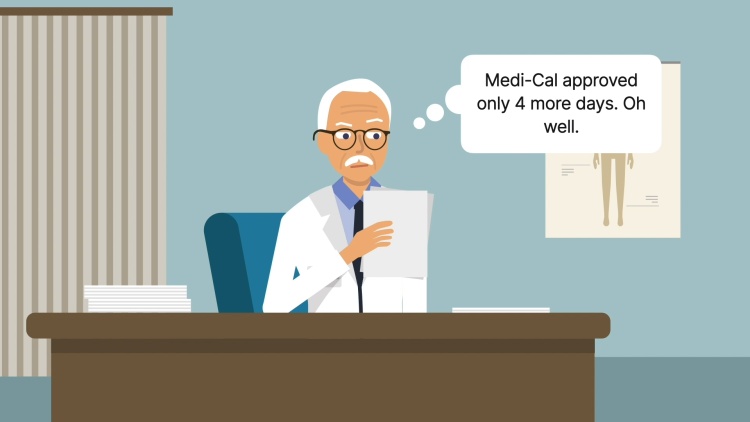Wickline v. State
California Court of Appeal
239 Cal.Rptr. 810 (1986)
- Written by Craig Conway, LLM
Facts
Wickline (plaintiff) suffered from a clot in her right leg due to her arteriosclerosis condition. Dr. Daniels informed Wickline that surgery was necessary and she was eligible for Medi-Cal, California’s financial medical assistance program. Daniels submitted a request for financial assistance to Medi-Cal which approved surgery and ten days hospitalization. Dr. Polonsky performed the operation to remove the clot, but complications arose, which required a second operation. Wickline’s authorized hospitalization ended on January 17, but Polonsky requested an additional eight days from Medi-Cal on January 16. Polonsky had concerns about Wickline developing a possible infection and wanted to monitor her in case her condition deteriorated. The on-site Medi-Cal nurse consultant did not believe that an additional eight days was necessary and she telephoned Dr. Glassman, the Medi-Cal physician consultant, to review the request. Glassman rejected the request for an additional eight days, but approved an additional four days of hospitalization beyond the original discharge date of January 17. Polonsky and Daniels did not question Glassman’s decision. Wickline was discharged in stable condition, but began experiencing pain in her right leg within a few days. Nine days later, Wickline’s leg required amputation. Wickline brought suit against the State of California (defendant), which managed the Medi-Cal program, for damages resulting from the loss of her leg. At trial, Polonsky testified that had Wickline remained in the hospital, he would have been able to save her leg. The state argued that the decision to discharge Wickline was made by her physicians and that Medi-Cal played no part in the discharge decision. The jury found for Wickline and the State appealed.
Rule of Law
Issue
Holding and Reasoning (Rowen, J.)
What to do next…
Here's why 907,000 law students have relied on our case briefs:
- Written by law professors and practitioners, not other law students. 47,100 briefs, keyed to 996 casebooks. Top-notch customer support.
- The right amount of information, includes the facts, issues, rule of law, holding and reasoning, and any concurrences and dissents.
- Access in your classes, works on your mobile and tablet. Massive library of related video lessons and high quality multiple-choice questions.
- Easy to use, uniform format for every case brief. Written in plain English, not in legalese. Our briefs summarize and simplify; they don’t just repeat the court’s language.





